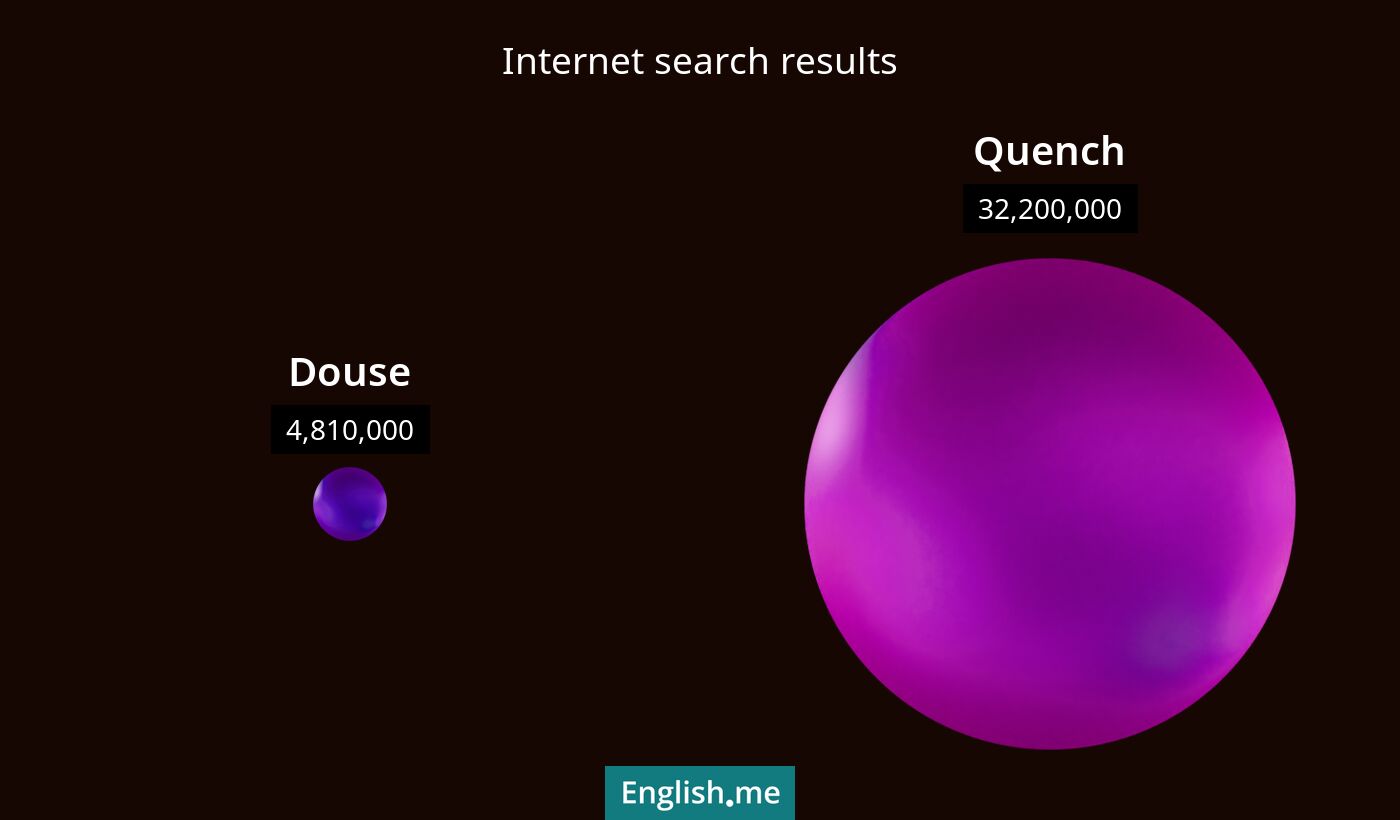"Quench" vs. "douse": when to use each word
Reviewed and edited by  Lloyd Cooper 24/04/2025, 08:12
Lloyd Cooper 24/04/2025, 08:12
English.me team member

 What is similar?
What is similar?
Both "douse" and "quench" are verbs associated with extinguishing fires or flames, often by using a liquid. They both can imply putting an end to something or suppressing it.
 What is different?
What is different?
"Douse" primarily means to pour liquid over something or someone, often to extinguish or drench. It does not have the meaning of satisfying thirst. "Quench" can mean to extinguish a fire, but it also commonly means to satisfy a thirst or desire. Additionally, "quench" is used in metallurgy to describe rapidly cooling heated metal.
 Which one is more common?
Which one is more common?

 Examples of usage
Examples of usage
Douse- The firefighters worked quickly to douse the flames.
- She doused the campfire with water before leaving.
- He accidentally doused himself with the garden hose.
- A glass of cold water helped quench his thirst.
- The fire extinguisher was used to quench the small blaze.
- The blacksmith quenched the hot iron in oil.

 English
English español
español française
française italiano
italiano deutsche
deutsche 日本語
日本語 polski
polski česky
česky svenska
svenska Türkçe
Türkçe Nederlands
Nederlands